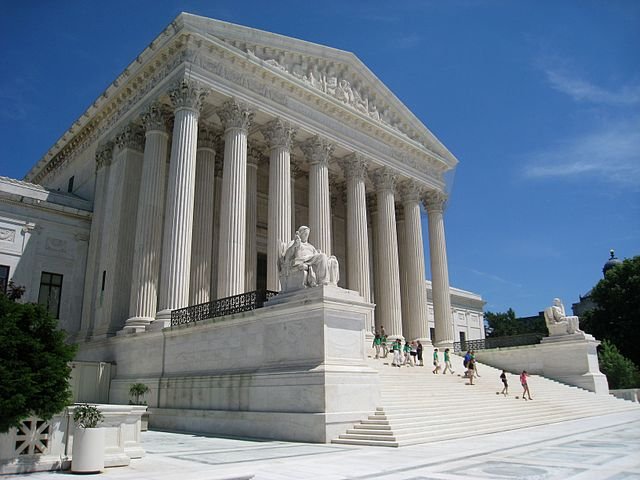US Supreme Court lets Trump freeze $4 billion in foreign aid – JURIST

The US Supreme Court on Friday sided with President Donald Trump’s administration in a dispute over foreign aid funding, granting the president’s request to freeze $4 billion in appropriations that Congress had already enacted but the administration sought to rescind.
The court’s majority stayed a lower court ruling that had directed the administration to obligate the funds by the end of the fiscal year on September 30. The justices said the government had made a “sufficient showing” that the Impoundment Control Act of 1974 bars lawsuits brought by private organizations to enforce spending laws and emphasized the executive branch’s authority in foreign affairs.
“The asserted harms to the Executive’s conduct of foreign affairs appear to outweigh the potential harm faced by respondents,” Friday’s unsigned order stated, while cautioning that the ruling “should not be read as a final determination on the merits.”
The decision is the latest test of President Trump’s efforts to expand executive control over federal spending, a power the Constitution assigns primarily to Congress.
Justice Elena Kagan, joined by Justices Sonia Sotomayor and Ketanji Brown Jackson, issued a 9-page dissent warning that the majority had intervened prematurely in a case with profound constitutional stakes.
“This case is not a likely candidate for a grant of emergency relief,” Kagan wrote. “The stakes are high: At issue is the allocation of power between the executive and Congress over the expenditure of public monies.”
Kagan criticized the court’s use of the emergency docket to resolve what she called “novel issues fundamental to the relationship between the President and Congress” without full briefing, oral argument, or deliberation. She also rejected the administration’s claims of irreparable harm, writing that the executive’s objections amounted to no more than frustration with carrying out Congress’s spending directives.
“That is just the price of living under a Constitution that gives Congress the power to make spending decisions through the enactment of appropriations laws,” she later wrote.
At the heart of the dispute is whether nonprofit groups like the AIDS Vaccine Advocacy Coalition and the Global Health Council can sue under the Administrative Procedure Act to compel the administration to spend funds Congress appropriated. The nonprofits argue that the president’s withholding of funds violates appropriations law and undermines aid programs supporting food security, trade capacity, and victims of torture abroad.
The administration counters that only the Comptroller General, not private organizations, may bring such enforcement actions under the 1974 Impoundment Control Act, which was enacted in response to President Richard Nixon’s large-scale impoundments of congressional appropriations.
Solicitor General D. John Sauer told the justices in the government’s brief to the court that forcing the executive branch to obligate the $4 billion would create “a grave and urgent threat” to the president’s ability to negotiate with Congress and foreign governments.
The Supreme Court’s order ensures that the disputed $4 billion will not be spent before the fiscal year ends on Tuesday, effectively nullifying the appropriation even as the case proceeds through the appeals process.
Lawyers for the advocacy groups decried the ruling. Nicolas Sansone of Public Citizen Litigation Group, representing the AIDS Vaccine Advocacy Coalition, said in a statement that the decision “further erodes separation of powers principles that are fundamental to our constitutional order” and warned of “grave humanitarian impact.”
Friday’s ruling marks the third time the foreign aid impoundment dispute has reached the justices since President Trump returned to the White House. Earlier this year, the court declined to freeze nearly $2 billion in similar aid.








